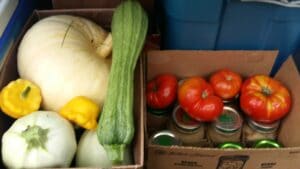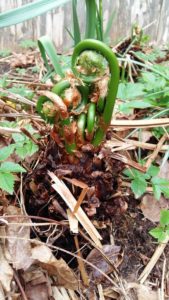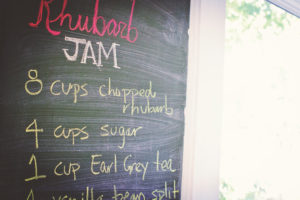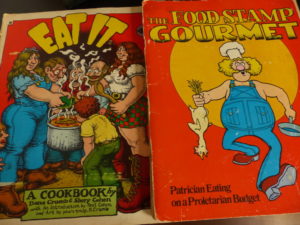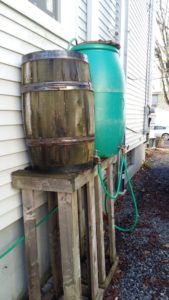Uncategorized
It’s fall in the garden, but the party’s not over yet!
It’s been a cool and crisp September, with the earliest frosts I can remember— cold enough to get out the windshield scraper for the early morning drive to get milk. The single-digit nighttime temperatures combined with an active hurricane season have sent East Coast gardeners into a predictable panic. Their Instagram accounts are overflowing with…
Read MoreUpdate On My New Audiobook
Friends, I am so happy to tell you that I am going into the studio tomorrow to begin recording the audio version of my book, Lost and Found: Recovering Your Spirit After A Concussion. It is important to me that I share this work with my fellow concussion alumni in a format that is compatible…
Read MoreCelebrating Your Accidentaversary
May 2nd, 2013 is a significant date for me: six years ago on that day, I fell and hit my head at the gym, and so began my acquaintance with concussion. I’ve learned that our brains hold on to significant dates—some benign, like birthdays, and some painful, like the date we lost a loved one…
Read MoreStalking green dragon babies: my love affair with fiddleheads
For Maritimers, May means the beautiful and widely-anticipated unfurling of the ostrich fern, otherwise known as the fiddlehead, whose name accurately reflects the shape of that musical instrument.
Especially renowned in New Brunswick, along the banks of the Saint John river, but actually found throughout the Maritimes and New England, these bright green gems like to hide themselves in wet and wild places, making them a forager’s delightful surprise discovery. Once discovered, like their springtime companion, the mayflower, foragers keep tight-lipped about their whereabouts. “Where’s your patch?” is a question you should never ask if you are a dinner guest at a forager’s house and happen to find fiddleheads nestled on your plate.
Read MoreHow to enjoy rhubarb season: some lore and two recipes
If you’re a seasonal eater here on the perpetually soggy East Coast, spring means three things: fiddleheads, asparagus, and rhubarb.
I’m going to spend the next couple of weeks singing the praises of each member of this marvellous trio in turn, mainly in the form of favourite recipes. I’ll start with the ‘barb since it’s the only one that’s visible in my garden right now.
Read MoreHow to escape from modern life for a few blissful hours: read a 1970s cookbook!
Our house is not blessed with an abundance of shelf space, and so we must choose our books wisely. I’m pretty assiduous with the yearly weeding out of already-read or unloved volumes, but there is one group of books I would be hard-pressed to part with: my collection of 1970s cookbooks.
Grease-stained and dog-eared, to me they are the perfect escapist literature: a blend of the practical, the comforting, the beautifully illustrated, and the sometimes bizarre. Sure, the dishes they describe can be fussy and time-consuming. I know there are many recipes in there that I will never, ever make. I still love reading them, and when I lack a good novel to lose myself in, I will often pull out a favourite cookbook so I can be transported back to my favourite decade of them all.
Read MoreHow food and class are connected
There’s an uncomfortable truth that I’ve encountered often in my thinking and acting (via book authorship and public speaking) on the subject of healthy food: this kind of food is usually the domain of the privileged, and not just because of the higher cost associated with it.
Read More“I don’t eat that”: confronting our food neuroses
I’m going to sound about a thousand years old—and not a little intolerant—when I admit my fondness for two venerable alimentary maxims: “Eat what’s set before you” and “Clean your plate.” More specifically, I’m attracted to the straightforward, can-do spirit animating this approach to feeding ourselves, a spirit that is totally lacking at today’s dinner table.
Read More7 Ideas for a March Break Foodie Staycation
March Break starts on the 13th, and parents who forgot to register for day camp are now racking their brains for ways to keep the kids happily occupied all week. Here on the East Coast, we had a dress rehearsal for the break in mid-February when a winter’s worth of snow got dumped on us over several days, cancelling school and releasing an avalanche of “What are we doing today?” heard across the region. We should therefore be ready for the real break… but are we?
Read MoreHow our family saves hundreds of litres of water a year with a bucket, some garden hose, and a few $20.00 hardware attachments (happy World Water Day, Mother Earth!)
World Water Day, March 22, is an excellent time to reflect on how much our survival as a species is connected to the fate of this precious resource.
Water is threatened on all sides by pollution, privatization, and industrial and domestic overuse, yet we often treat it as though it were a limitless commodity, a kind of earth-abuse that will come back to haunt us and our descendants for years to come.
Wanting to shrink our ungainly eco-footprint with respect to water, my family has been able to reduce its water intake to about one-quarter of the Canadian national average. Between October of 2015 and October 2016, our most recent annual water billing period, we have averaged around 250 litres per day–in our household of three people, or just over 80 litres per person per day (by comparison, a March 18, 2009 National Post story states the average single Canadian and American uses about 340 litres per day).
Read More